
The burning desire is the beating heart of all great stories. Without the burning desire, the story will fall apart faster than a reality star who’s lost her hair extensions.
We’ve discussed story structure more times than I can count on this blog, and for good reasons. When we understand the fundamental parts of story and how they work, why they work, etc. THEN when something seems ‘off’ we possess the knowledge base and vocabulary to detect WHY the story isn’t working then fix it.
The Burning Desire for the BBT

I know it’s been a while, so super quick review. The first crucial ingredient for any story is a core antagonist to create the main problem in need of resolution by the time we reach THE END.
Since the whole ‘antagonist’ concept tied my brain in knots for YEARS, I finally invented my own term—Big Boss Troublemaker (BBT).
Why?
Because every story must have a core antagonist or, by definition, it isn’t a story.
That said, not all antagonists are villains. Villains are only one type of antagonist. Very useful in thrillers, horror, mystery, science fiction, and the like, but not so much in general fiction or literary fiction.
To understand more what I mean about the BBT, feel free to go HERE. If we fail to understand the BBT, then frankly the burning desire is a moot point.
While all stories must have a core antagonist (BBT), that alone isn’t enough. We must also figure out what drives the BBT. What is the burning desire fueling the goal that will eventually come at odds with the protagonist and (eventually) create a hero?
If we look back at some of the most iconic books, movies and series, we will see the writers NAILED the burning desire.
***I’ve detailed this on posts about real ‘flesh and blood’ villains, but also when we have a BBT that might be more everyday or existential.
Again, in the essence of time, I recommend taking a look at the posts I’ve hyperlinked.
BBT Burning Desire Done WELL
In this section, we’ll talk about some excellent examples from film as well as literature.
Fahrenheit 451
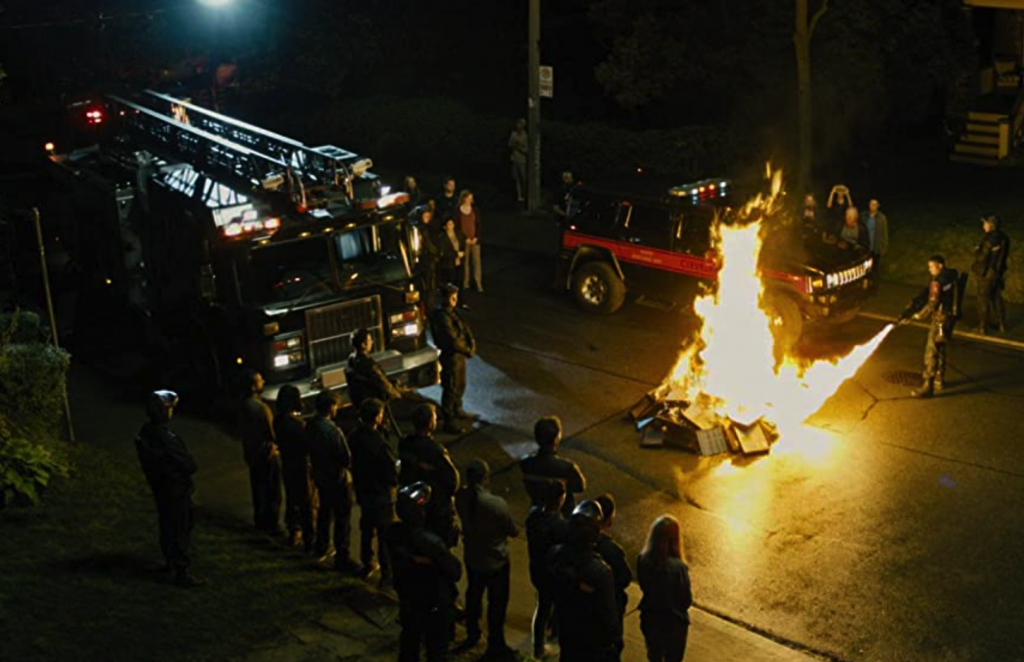
Ray Bradbury’s classic Fahrenheit 451 is an incredible, but terrifying, example of Man-Versus-Society. The BBT is a totalitarian government embroiled in endless (and pointless) wars. To keep the population from asking too many questions the government doesn’t want to answer…books are illegal.
The fire department, in this world, doesn’t exist to put out fires, rather to start them. A fireman’s goal is to hunt down any ‘offenders’ (people hoarding books), burn their stockpile, and possibly arrest them for crimes against the State.
IF, however, you read Fahrenheit 451, not ALL books are illegal. Only books deemed dangerous enough to encourage people to think, feel and, worst of all…QUESTION.

For a totalitarian government with a goal to keep people distracted and placated with fluff and nonsense, certain literary and cultural writings are deemed a direct threat to their agenda….ABSOLUTE CONTROL.
If people read, and maybe begin to think critically, then they might stop blindly gobbling down all the propaganda. Should that happen, then the powers that be could possibly lose power and—GASP—be held accountable.
Since it would be boring or even confusing for our fireman, Guy Montag (the protagonist) to simply ‘war with society,’ Bradbury gives us a proxy to represent the system…Montag’s mentor, father figure and closest friend Captain Beatty.
Montag’s desire to think for himself, to ponder the why of his world and be allowed to challenge the status quo comes in DIRECT conflict with Captain Beatty’s goal of keeping society ‘happy.’
Beatty remembers earlier times of complete social unrest bordering on anarchy, record rates of crime, suicide, depression, etc. and he genuinely believes people are better off ‘keeping it light.’
Bad pun. Oops.
I, Robot
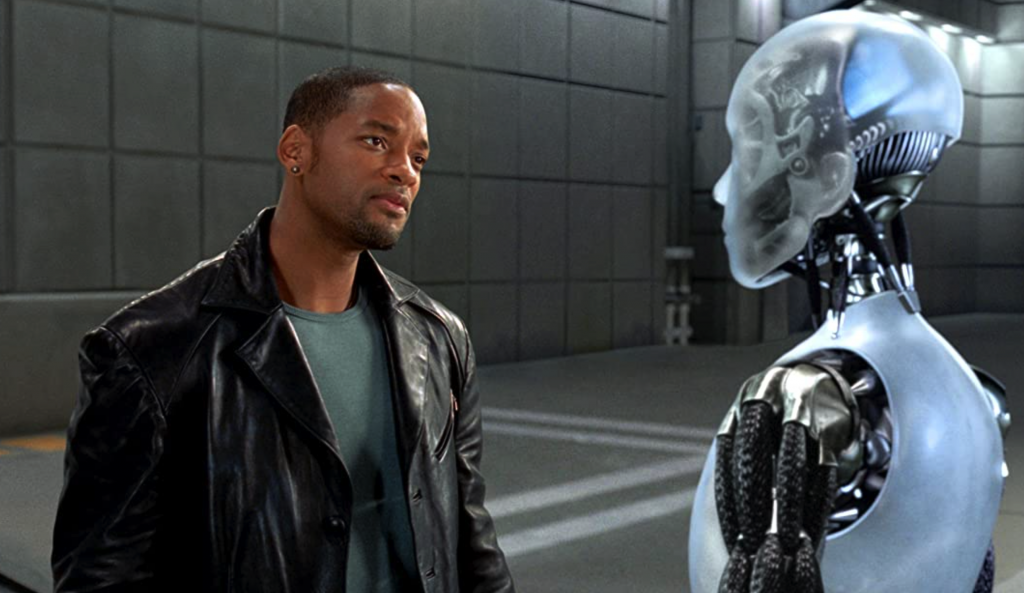
The movie I, Robot was actually based off a collection of Isaac Asimov’s short stories and essays that questioned humanity’s increasing reliance on technology, robots in particular. How much free will were we blindly handing away in the name of convenience? What would be the ultimate consequence? Could the veritably sacrosanct Three Laws of Robotics be fully trusted?
Our protagonist, Detective Del Spooner, loathes technology, robots in particular. When a robot allegedly murders the leading scientist in the field of robotics (Dr. Alfred Lanning), Spooner believes he has all the proof he needs. Robots not only cannot be trusted, but they are dangerous and even deadly.
The ‘mind’ responsible for driving all the robots and their protocols is VIKI (Virtual Interactive Kinetic Intelligence). VIKI is there to ensure all robots adhere to the Three Laws of Robotics, so how can Spooner explain a robot directly defying the law dictating that no robot can harm a human?

It has to do with the burning desire. Granted, we are referring to an artificial intelligence. In Spooner’s mind, robots are fancy toasters, nothing more. What if, however, he’s wrong?
At what point do we—humans—create artificial intelligence that crosses over into a sentient creature that can reason?
Back to the burning desire. VIKI has been around long enough, observed human behavior long enough, that ‘she’ decides to make some changes. What Spooner comes to realize is that VIKI, and the legions of robots locking people in their homes, are technically ‘innocent.’
All three laws hinge on the first:
A robot may not injure a human being or, through inaction, allow a human being to come to harm.
Isaac Asimov
Since VIKI witnesses that we—humans—can’t be trusted with so much as a swizzle stick, she decides to take the strictest interpretation of the law. By locking humans up at home and policing our every move, VIKI is making sure no human comes to any harm. Technically a noble goal, but…*runs screaming*
Ultimately, VIKI was only doing exactly what we humans asked her to.
When The Burning Desire Fizzles

Whether our story involves a serial killer, a society-gone-sideways, a power-hungry ruler, artificial intelligence, or even a well-meaning mother-in-law, the burning desire MUST pass muster.
When the burning desire is weak, absurd or outright STUPID, it wrecks the story. I’ve spent many years as an editor, teacher, story doctor, you name it. The two issues most new writers will run into are:
- Failing to even HAVE a BBT, which devolves the ‘story’ into a frustrating series of ‘bad things happening.’ Readers/viewers will stagger away wondering what was the POINT?
- If a writer does have a BBT, then the motivations are nonexistent, weak, nonsensical or downright lame.
Too many times, I’ve worked with new authors who are on the verge of tears when, to me, the problem was clear. The burning desire is missing or fizzling.
For instance, a sorceress wants to bridge two dimensions bringing hell to Earth. Okay. cool. But WHY? Why would she do that? A maniacal tyrant who simply wants to see the world implode. Fine, but again…um, why?
Joker & Hipocrisy as the Burning Desire

We certainly can have a BBT content with self-immolation or the annihilation of others (even innocents). They can make for some of the most frightening villains.
It all hinges, however, on the WHY.
In The Dark Knight, Health Ledger-as-Joker demonstrated this CAN be done (and become the stuff of legends). Some men cannot be bought, cannot be reasoned with, and they simply want to see the world BURN.
Though Joker comes across as a total madman—and maybe he is—he’s also a master manipulator. His goal for wreaking havoc in Gotham is to force Batman’s hand, and ultimately test his nemesis’s convictions.
Is Batman a hypocrite like other ‘heroes’ in Gotham?
The Joker is a wildcard in gambling…and as a villain. This said, Joker promoting all-out anarchy actually does have a point. Batman believes he must protect the seemingly unassailable integrity of Gotham’s public hero, Harvey Dent. To do this, however, Batman ultimately must take the fall for blood that rightfully should have been on Dent’s hands.
For Batman to win, he must also lose.
Joker forces Batman into a no-win situation where our Dark Knight has to make the toughest decisions of all. In my POV, Joker maneuvers Batman into a final showdown that’s actually a stalemate.
And he succeeds brilliantly.
When it comes down to any antagonist (villain or otherwise), we simply need to ask:
- What does the BBT stand to gain?
- Does their motivation merit the level of their actions?
The Burning Desire Goes Emo: Horsemen
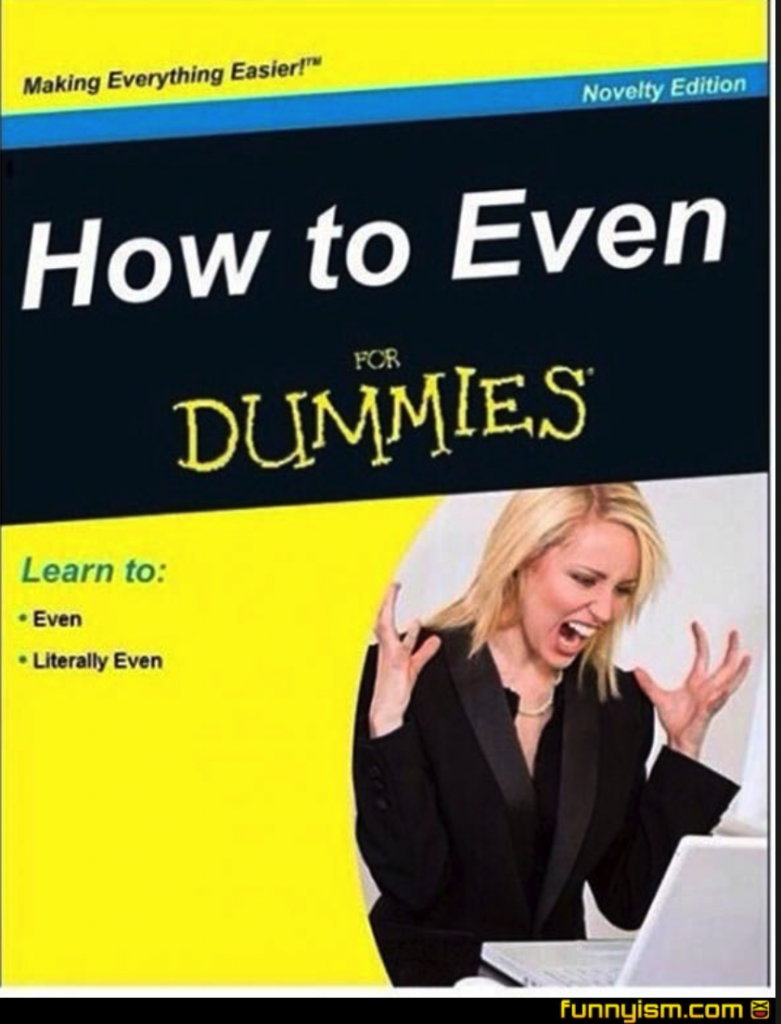
Last weekend I watched a movie called ‘Horsemen.’ In theory, this movie had all the elements necessary for a flick I would LOVE. It has a dynamite cast of actors, a fantastic premise, and appeared to run along the lines of Se7en.
It even had a great tag line:
A recently widowed detective still grieving over his wife’s death discovers a shocking connection between a serial killing spree and the Four Horsemen of the Apocalypse.
Premise for ‘Horsemen’
Okey, dokey. I am going to TOTALLY and UNAPOLOGETICALLY ruin this movie for you. Granted, I know not everyone likes dark serial killer movies with gore. I don’t necessarily have a problem so long as any violence ultimately has a POINT.
Horsemen is a great example of stupid, gratuitous violence…heavy emphasis on the stupid.
The protagonist, Detroit Detective Aidan Breslin, is a single dad rearing a teenage boy and a younger son after his wife’s untimely death from cancer. He’s a very sympathetic character, a man doing his best to balance home with work.
We also realize early on that there is a lot of tension at home, particularly with the teenager who resents his father for not ‘being there’ when his mother passed away…and for not being there in the years since. Fair point. Makes for a layered protagonist.
Breslin is already emotionally shredded and spread too thinly. The last thing he needs is a serial killer. Not a serial killer, but seemingly a group killing for some unknown (but vague and ‘biblically’ referenced agenda). And they don’t settle for killing innocent people…they butcher them.
By this point, I am all, ‘Meh, fine. Worked in Se7en. See where this goes.’
Where did it go?
Welcome to the Land of STUPID
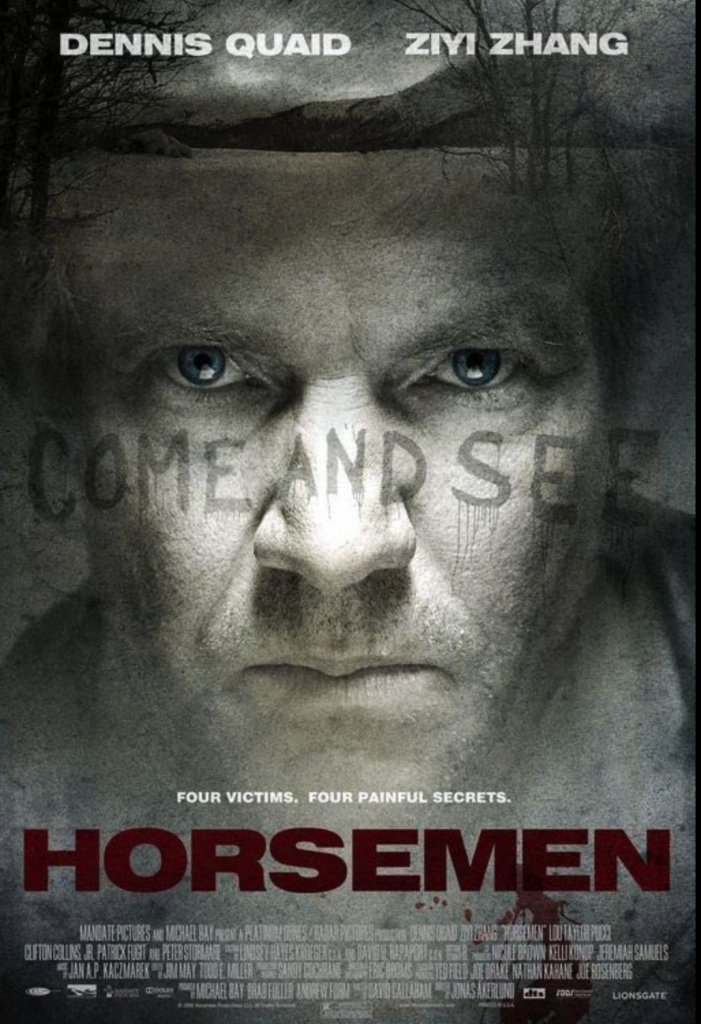
Come and See. Better still? Don’t.
By the time we are into Act Two (Warrior), Breslin knows they are dealing with a group of murderers trying to make a statement. There are (allegedly) four killers, each representing one of the four horsemen from Revelations: Red (War), Green (Pestilence), Black (Famine) and White (Conquest).
There is no need to go into detail because, bluntly, it was beyond absurd. Suffice to say the Horsemen have some sort of justification for slaughtering regular people who’ve committed no crime. Must be a big deal, right?
Nope.
I’ll only concern myself with the White Horseman for a number of reasons. Mostly because I have a limit on how much idiocy I can handle, but also because the White Horseman is supposed to be the biggest and baddest of the bunch—the leader and thus our BBT.
….and it’s the detective’s son.
The burning desire that justifies wholesale butchery of innocent people is….*drum roll*
Daddy wasn’t there for him enough.
*primal screaming*
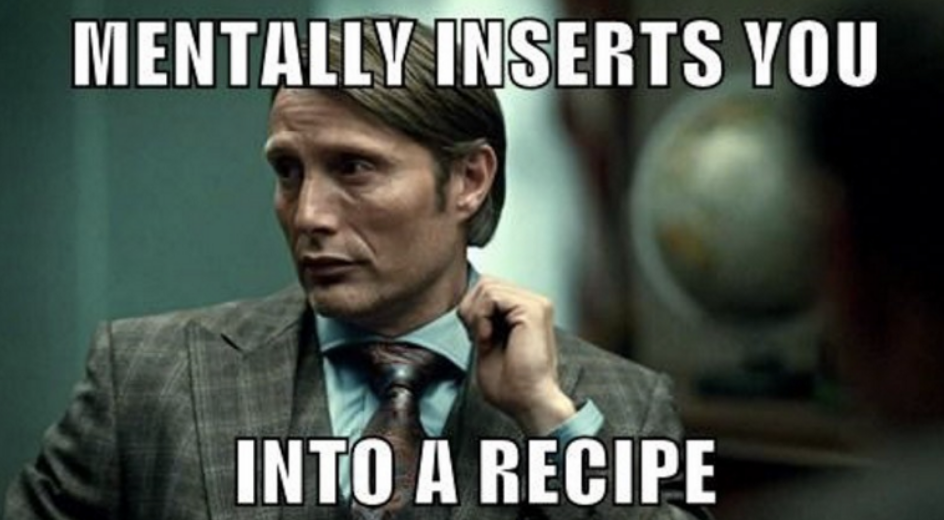
His father is a detective in one of the most crime-riddled cities in the U.S. and wasn’t there when his mother died. Um, maybe because Dad had to pay the bills for like food, shelter and health insurance? And Dad wasn’t there enough after Mom died. Again, he is grieving and remember he is a HOMICIDE DETECTIVE?
So the son’s great plan is this. His dad is absentee because he’s too busy solving murders, bringing comfort to grieving victims and the bad guys to justice.
What would be a great idea?
Go on a killing spree that um…makes your father keep having to ditch you to find out WHO is committing these heinous murders.
*rails at the heavens*
Finding the Balance…in a GOOD Way

Hopefully I’ve offered a nice selection of books/movies where the burning reason was done well. It’s tougher to find examples of when it’s botched because these books, movies and series are often forgotten for this very reason.
***I have a rant somewhere in the archives about the Pixar disaster we know as Finding Dory, but have too many posts and can’t find it 🙁 .
There is a sweet spot when it comes to finding that burning reason for our story to exist. If the burning desire is missing, vague, overly complicated or absurd, that is a formula for a reader to toss a book across the room.
Or post a blog/rant about a movie/series.
In Horsemen, the screenwriters possibly could have salvaged the movie, but it’s very unlikely. If the writers wanted the White Horseman to have a cause worthy of the crimes committed, they’d have had to ditch their little darling….having the BBT puppet master being the detective’s son.
To make the BBT the detective’s son, would have meant sacrificing the protagonist and having no ‘hero.’ This makes my point that when we understand what makes a great story, we can fix it before it’s too late.
Had the Horsemen screenwriters asked the really tough questions, they could have had a contender. Actually, was a simple fix, but we might talk about that next time 😉 .
In the End, I LOVE Hearing from You!
I know I’ve been away far too long, and I missed y’all! Mom and Hubby both had emergency surgeries, I cracked two back teeth, had to get in all my work on this last book that was 91,000 words with at least 125 citations and AHHHH!
I was just beyond burned out. Thanks for being so patient. It gave me space to refill my mental and emotional reserves. These posts take a lot of time and research.
But back to this post.
What are your thoughts? Can you think of movies where you found yourself struggling with maybe ‘forgiving the unforgivable’ because the BBT had such a great burning reason? Like Hannibal Lecter in The Silence of the Lambs or Clyde Sheldon in Law Abiding Citizen?
What about movies, books, series that, like Horsemen, left you angry about losing hours of your life you can’t get back?
Also, I’d like to know what topics you might like me to cover, questions I might be able to answer, etc. I am rusty so suggestions are AWESOME!
I’ve missed y’all a ton and eager to get back in the groove.








10 comments
1 ping
Skip to comment form
Loved seeing this writing post from you-I feel like its been a while and I missed you!
Author
Oh I MISSED Y’ALL SOOOO MUCH!
Thanks for the reminder! I haven’t really answered my own BBT’s deepest desire yet, so my plotting isn’t going anywhere. Stay tuned for a major story breakthrough (any year now ?).
First of all, you are quirky. i love that. Also, you are right on the money, and whenever you vent everyone else totally gets it and is grateful that somebody FINALLY SAID SOMETHING. It would be awesome if you posted about editing…
Author
DONE!
But, but . . . if we put a burning desire into our books, aren’t we just doing the job of firemen like Beatty and Montag’s for them? (Sorry, couldn’t resist.)
Author
*bada bump snare* They BOTH had a burning desire—Montag for knowledge and depth and Beatty for superficial contentment/peace. Both make a valid point and that is why that book is a classic 😉
I greatly appreciate your wisdom. I hope things are looking up in your neck of the woods. I fear my 4th book, due to be released in a few weeks on Amazon.com, may not measure up, but fear has never stopped me, for very long anyway. The book is my first ghost story, and it was fun traveling that literary path. All the best.
That’s it! I need to define my BBT’s goal. I thought it was one ghost but it’s really another.
Burning desire is great motivation, a burning life or death necessity is how you force characters to do what they don’t want to do and that is tension served on a golden platter.
[…] Cesar Airas’s “no revision” method, Kristin Lamb talks about the importance of a character’s burning desire as the heart of great stories, Sarah Penner has a pre-launch checklist for debut authors, and […]